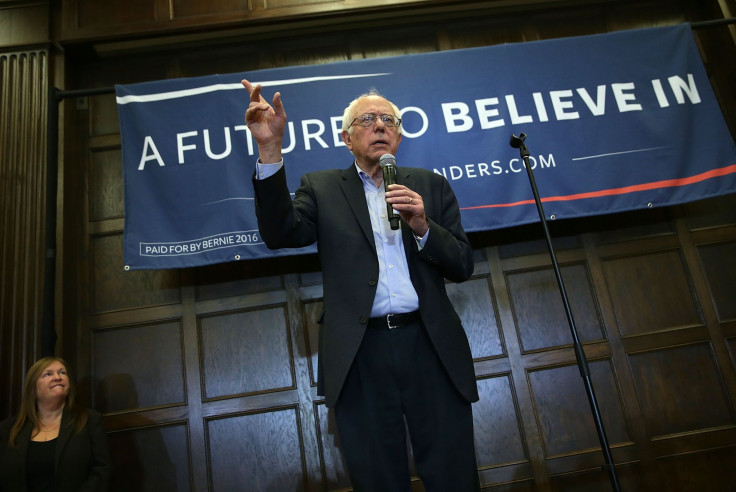Video: Sanders Sets Sights On New Hampshire Following Strong Showing In Iowa

REUTERS --
Buoyed by a strong performance in the Democratic presidential caucus in Iowa the night before, U.S. Senator Bernie Sanders on Tuesday (February 2) set his sights on New Hampshire, which hosts the nation's first primary on February 9.
The underdog Bernie Sanders forced former Secretary of State Hillary Clinton to a virtual tie, reigniting questions about her ability to close the deal with Democratic voters and turning up the pressure on her high-profile White House campaign.
"Last night in Iowa, we took on the most powerful political organization in this country. Last night we came back from a 50 point deficit in the polls. And last night, we began the political revolution not just in Iowa, not just in New Hampshire, but all over this country," Sanders said at a campaign rally in Keene, New Hampshire.
Sanders has been leading in opinion polls there and has an advantage because it neighbors his home state Vermont. A Clinton loss would start to set off alarm bells with her supporters.
The self-described Democratic Socialist told supporters his showing in Iowa was proof that his campaign platform -- which proposes corporate reform, raising the minimum wage, creating a single-payer healthcare system, and offering free tuition to public universities -- is gaining traction with moderate Americans.
"As I go around this country, and I talk about my outrage that billionaires are now buying elections, that Wall Street now has so much impact over our political process, it is not just progressives and Democrats who share those views. You've got a lot of moderates; you've got a lot of Republicans who say, 'yeah we disagree on the issues,' but no sensible American believes that the Koch brothers and a few of their billionaire friends should be able to spend 900 million dollars in this election cycle," Sanders said.
Into the early hours of Tuesday morning, Clinton and Sanders remained separated by less than a single percentage point in the Iowa Caucus. The race was so tight that several precincts were forced to decide whether Clinton or Sanders got the winning votes - and one more delegate - by a coin toss, following the state Democratic Party's advice.
The MSNBC television network finally called the race for Clinton at nearly 3 a.m. CST (0900 GMT), and Clinton's Iowa state director Matt Paul issued a statement declaring victory with "no uncertainty."
Sanders, 74, called on Granite State voters to get out the vote for him.
"New Hampshire will hold the first primary in the country, and you will have the opportunity to help lead this country in a very very different direction. Please come out and vote. Please bring your friends and everybody you know. If we win here in New Hampshire, after our great showing in Iowa, well we're going to do well in Nevada and South Carolina. Together, not only are we going to win this election, but more importantly, we're going to transform our great country," Sanders said.
Still, Sanders faces significant challenges when the Democratic nominating contest moves to the more diverse states of Nevada and South Carolina before expanding to 11 states on March 1, "Super Tuesday," including seven in the South where Clinton's advantage with African-American voters could begin to pay off.
© Copyright Thomson Reuters {{Year}}. All rights reserved.





















